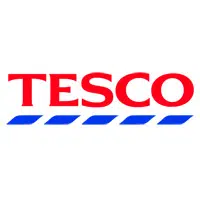“NFC was revolutionary 10 years ago but I think it just might have passed its sell-by date”, the retail giant’s Lyndon Lee told attendees at a mobile payments conference in London this week. “We are developing a digital wallet, focusing on marketing and loyalty aspects, but payment may not enter the wallet.”

NFC mobile payments are too complicated, there are too many parties involved and the concept offers too little value, Lyndon Lee, Enterprise Consultant Architect at Tesco, one of the world’s largest retail groups, told attendees at the Mobile Payments and Value Added Services 2013 conference in London this week.
“There is limited value and an increasing number of players which is making it difficult,” Lee, who leads projects on mobile payments, fraud management and identity and access management, explained.
“Is mobile NFC at the right place, at the right time? I don’t see any real movement or activity. NFC usability is not really revolutionary and, for the general public, is it really that cool? I think the next generation won’t think it’s cool enough for them and they won’t use it.
“But this is my opinion. NFC was revolutionary 10 years ago but I think it just might have passed its sell-by date. Usability is a big question and we need to crack this.
“At Tesco, we focus entirely on the consumer relationship. We are developing a digital wallet, focusing on marketing and loyalty aspects, but payment may not enter the wallet. We have a payment system in place already and we don’t want to disrupt it if it doesn’t add any value.
“If it doesn’t give us any value to adopt it, why should we do it?”
In an interview with NFC World following his presentation, Lee said: “Mobile NFC is unappealing. Contactless cards, I have no doubt about. They work now and they have no difficulties, but mobile NFC is very challenging and not easy.”
“As it stands, there are no official plans for NFC,” he said. “Existing players ask the question, do we really want all the complication of mobile NFC? It has too little value to be shared and I find it hard to believe that it will really take off.
“Contactless cards are already there and they already have value. Mobile NFC payments have no value to us; it has lack of consumer experience and it is too complicated so I don’t see a future. It is a very stagnant market.”
Next: Visit the NFCW Expo to find new suppliers and solutions
I can understand the comments regarding the multitude of companies involved in the NFC payment space currently making things complicated. However, I’m not sure about the logic that on one hand contactless cards already have value but using mobile phones for payments doesn’t.
I don’t carry a diary any more because I use my phone. I don’t carry an A-Z map any more because I use my phone. I don’t have an alarm clock because I use my phone. I think it’s far more likely that the ‘next generation’ will consider carrying a card to make payments similar to how I think of people carrying cheque books..
I’m trying to make sense of this. He can’t mean Tesco isn’t going to accept NFC payments, because that to all intents and purposes works just like contactless cards. There is no extra overhead, and he wouldn’t want to be turning customers away.
But the way he talks about too many players, that makes me think he’s been talking to mobile operators, TSMs and so on.
So it sounds like Tesco is not rejecting NFC as such, just that he is saying he doesn’t want to get into running his own NFC payment scheme and all the fuss (provisioning, renting space on SEs etc) that involves. Which would be fair enough, really. Does that sound right?
He mentions that he is building his own wallet. That would mean that he would need to integrate payment into it, which is probably difficult and involves talking to multiple vendors in the various parts of the entire ecosystem. From this perspective I can follow his thought. My Q would be: why build your own wallet in the first place? Who else do you want to invite onto it? Or is it really an App? Why not wait for an Apple/Goolge/MSFT/Visa/Master/ Samsung/you name it wallet to prevail due to the multitude of services these promise to have and their global reach?
What strikes me, is that he does not give any view on the future developments: is he never going to add one? Or could it be that this changes with reduced complexity and higher demand?
In any case: if he needs to make a decision today, I can follow his logic that to him incremental development and operating costs and a risky/more difficult user acceptance of a Tesco Wallet offering a payment functionality outweigh the benefits payment brings. Maybe even harder: Payment in a Tesco-App that is focused on CRM might have a strange taste.